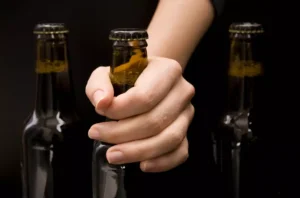
The first step in dealing with the dry drunk syndrome is the same as it was for quitting alcohol. Once you do that, you can look for help and support from those around you. Connecting with other sober people and establishing healthy routines can help as well. The symptoms of dry drunk syndrome can vary depending on the individual and the severity of their alcohol dependence. Common signs include low self-esteem, difficulty coping with stress and changes in the environment, difficulty building relationships, and persistent negative thoughts about themselves or others.
Beyond Sobriety: How To Overcome Dry Drunk Syndrome In Recovery
During dry drunk syndrome, individuals may experience some of these similar sensations even after they have begun treatment. In some cases, dry drunk syndrome can last for multiple years after a person has stopped drinking. Researchers believe that this is because the brain and body are still recovering from the chronic changes that addiction has caused. Recovery programs like those we offer at CenterPointe Recovery Center address both psychological and physical dependence, ensuring comprehensive care that targets the root causes of addiction. We will provide the necessary support to overcome dry drunk syndrome while allowing you to maintain your daily responsibilities. To effectively address dry drunk syndrome, you can benefit from an outpatient program at one of our recovery centers in Sarasota, Venice, or Port Charlotte.

Get Healthy
- Anyone that prematurely left addiction treatment likely won’t enjoy the inner healing it can provide.
- Recovery.com uses a standard procedure to make sure treatment provider profiles on our site are current and complete.
- Seeking professional help is always recommended to manage dry drunk syndrome symptoms and prevent relapse.
- To reduce the risk of relapse, patients are encouraged to change their entire life during addiction treatment.
- These conditions are dangerous because dry drunk syndrome can easily trigger an alcohol relapse if not appropriately managed.
The Semel Institute for Neuroscience and Human Behavior states that about 75% of people recovering from AUD experience PAWS. However, there is no information on how many people these symptoms specifically affect. Sobriety is a long, ongoing process, but help, support, and treatment can make it easier.
The Benefit of Support Groups
You might even feel like they’re taking a step backward, not forward. But remember that this phase is a fairly normal part of recovery, and it won’t last forever. The important thing is to find a recovery program that works for you and stick with it. If one approach doesn’t feel right, take a step back and consider a different one. Keep in mind that these hobbies might not feel quite as enjoyable dry drunk syndrome during the early stages of recovery. If some time goes by and you still feel the same way, you can always give a different coping technique a try or explore a new hobby.

- Professional intervention plays a pivotal role in addressing the underlying issues and equipping individuals with tools and strategies for lasting recovery.
- Given that relapse is a process, it may be recognized and understood prior to use, the author claims.
- The details are kept up to date to help people with addiction treatment needs get the most full and precise facts about the rehabilitation facility.
- It is essential to seek professional help if you or a loved one are experiencing dry drunk symptoms.
- Begin with a free call to an addiction & behavioral health treatment advisor.
Over time, the initial vigor and excitement of recovery can fade, leaving a sense of boredom or dissatisfaction. This “pink cloud” phase, where everything seems positive, dissipates, leading to a more challenging phase of maintaining motivation. This phase often begins subtly, with small annoyances becoming disproportionately frustrating.

- Even if we cannot assist you, we will lead you to wherever you can get support.
- When you feel ready or just want someone to speak to about therapy alternatives to change your life call us.
- Substituting alcohol dependence for another addiction due to unresolved trauma.
- Addiction Resource does not favor or support any specific recovery center, nor do we claim to ensure the quality, validity, or effectiveness of any particular treatment center.
- When impulsivity is combined with grandiosity, attention-seeking behavior accelerates to warp speed.
- Fortunately, many resources are available for people suffering from dry drunk syndrome to help them cope and recover.
While clinicians working at the rehabilitation centers often notice signs of protracted withdrawal syndrome, it is hard to keep track of all patients who stopped abusing alcohol. PAWS symptoms are reasonably common among people recovering from AUD. If a person has concerns about their PAWS symptoms, they can try using various methods to manage them. They can also speak with a healthcare professional, join a support group, or both. If a person has symptoms of PAWS, it does not mean that they are having a relapse.
The Warning Signs of Dry Drunk Syndrome

For the creators of the Alcoholics Anonymous groups, the dry drunk syndrome timeframe is a dangerous breaking point for physically and mentally giving up drinking. Overall, living with dry drunk syndrome can be incredibly difficult for both the person in recovery and their family. At Boardwalk Recovery Center, we ensure that alcoholics are able to identify the necessary internal work they need to complete for their recovery. We also help them understand that staying sober and living in recovery means a lot more than just staying away from the bottle. We treat dry alcohol syndrome just like any other psychological phenomenon.

By Buddy TBuddy T is a writer and founding member of the Online Al-Anon Outreach Committee with decades of experience writing about alcoholism. Because he is a member of a support group that stresses the importance of anonymity at Alcohol Use Disorder the public level, he does not use his photograph or his real name on this website. Other groups include SMART Recovery and Secular Organizations for Sobriety. Any of these mutual-aid, or support groups, can be an important component of long-term recovery. A person who has PAWS may find it helpful to have the support of their loved ones. However, having symptoms of PAWS, which can last for up to 2 years following alcohol withdrawal, can put a person at higher risk of relapsing.
Of course, it’s important to set (and enforce) clear boundaries around behavior that affects you negatively, like angry outbursts or dishonesty. But it’s also important to cultivate patience as they work toward making changes. It’s equally important to explore the habits and reasons behind your drinking, ideally with a qualified therapist.



Add comment